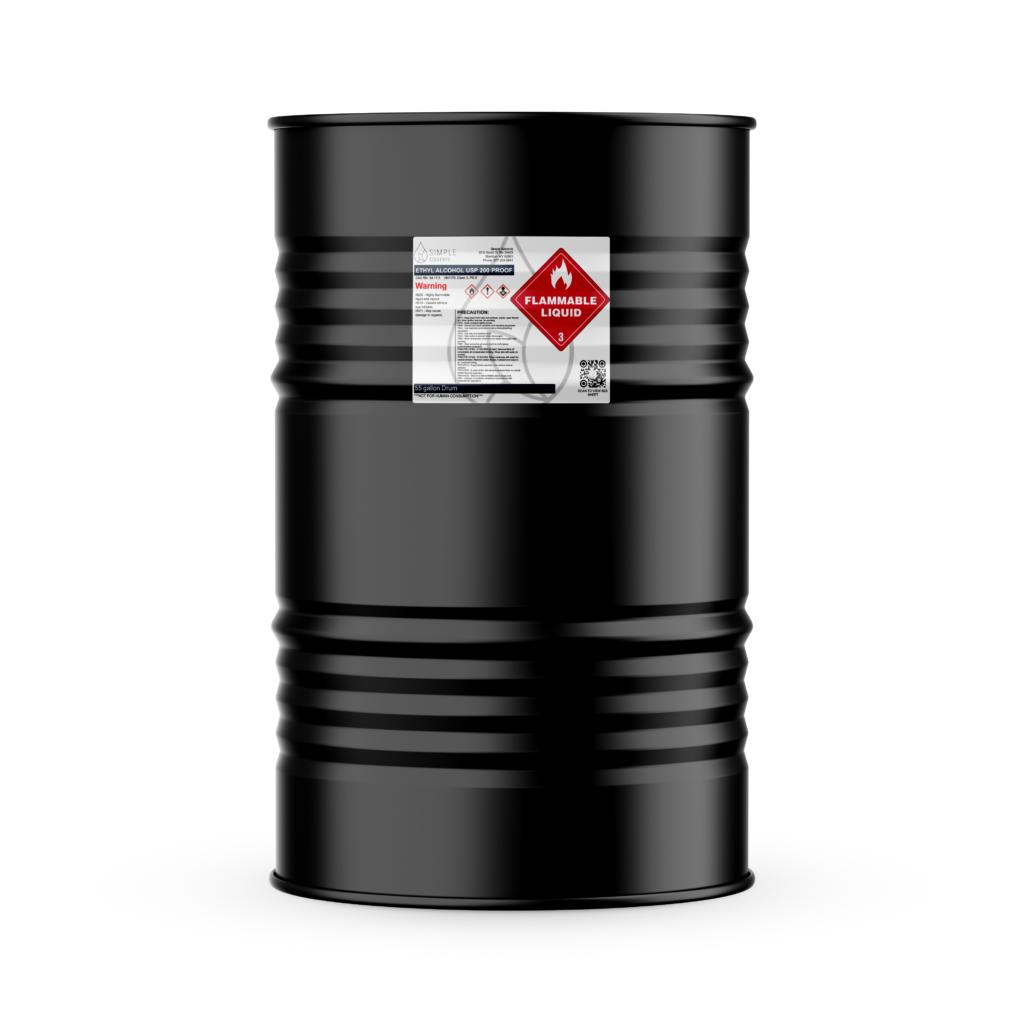Know Your Essentials: Key Things to Know About Ethanol

Know Your Essentials: Key Things to Know About Ethanol
Ethanol, also known as ethyl alcohol, is a clear, colorless liquid with a characteristic odor. It is primarily produced through the fermentation of sugars by yeast or by the hydration of ethylene. Ethanol is a renewable fuel mainly used as a blend with gasoline, and it is extensively employed as a solvent in the chemical and pharmaceutical industries.
In this article, we will discuss the essential aspects of ethanol, including its uses, production, and environmental impact.

Know Your Essentials – Uses of Ethanol
1. Fuel
Ethanol is widely used as a fuel additive in transportation. It is blended with gasoline to reduce emissions of harmful pollutants and enhance engine performance. In the United States, the most common blend is E10, which contains 10% ethanol and 90% gasoline.
The use of ethanol as a fuel additive has been increasing due to its renewability, lower greenhouse gas emissions, and the potential to reduce dependence on petroleum.
2. Industrial Solvent
Ethanol is a versatile solvent used in various industries, such as paint, coatings, personal care products, and pharmaceuticals. It is employed as a solvent for a wide range of organic compounds and helps to achieve desired consistency and texture in the final product.
3. Food and Beverages
Ethanol is a crucial ingredient in the production of alcoholic beverages, such as beer, wine, and spirits. It is also used as a food additive, flavor enhancer, and preservative in various food products.
4. Antiseptic and Disinfectant
Ethanol is a potent germicide, effective against most bacteria, fungi, and viruses. It is used in the formulation of hand sanitizers, surface disinfectants, and antiseptic wipes to prevent the spread of infections.
5. Chemical Industry
Ethanol is a building block in synthesizing numerous chemicals, such as ethylene, acetic acid, and ethyl acetate. These chemicals are the foundation for many products, including plastics, textiles, and adhesives.

Know Your Essentials – Production of Ethanol
1. Fermentation
The most common method of ethanol production is fermentation of sugars derived from biomass feedstocks, such as corn, sugarcane, and cellulosic materials. Yeast is added to the feedstock, converting sugar into ethanol and carbon dioxide. The ethanol is then separated and purified through distillation and dehydration processes.
2. Hydration of Ethylene
The hydration of ethylene, a petroleum-derived feedstock, can also produce ethanol. In this process, ethylene reacts with water in the presence of an acid catalyst to form ethanol. This method is more prevalent in countries with limited biomass resources and abundant petroleum reserves.
Know Your Essentials – Environmental Impact of Ethanol
1. Greenhouse Gas Emissions
The use of ethanol as a fuel can significantly reduce greenhouse gas emissions compared to gasoline. This is because ethanol is produced from renewable and carbon-dioxide-absorbing feedstocks, such as corn and sugarcane. Additionally, the combustion of ethanol generates fewer carbon emissions than gasoline.
2. Land Use and Deforestation
The increased demand for ethanol production can lead to land-use changes and deforestation, as more land is required for growing feedstocks. This can result in the loss of biodiversity and increased carbon emissions due to deforestation.
3. Water Use
Ethanol production can be water-intensive, especially during the cultivation of feedstocks. This can lead to over-exploitation of water resources and increased competition for water among different users.
4. Air Quality
The combustion of ethanol in vehicles can reduce emissions of harmful pollutants, such as carbon monoxide, particulate matter, and volatile organic compounds. However, it can also increase emissions of certain pollutants, such as acetaldehyde and formaldehyde, which are known to be toxic and carcinogenic. Learn more about the benefits of ethanol compared with gasoline here!
Conclusion
Ethanol is a versatile and renewable substance with numerous applications in our daily lives; you must know your essentials. Its use as a fuel additive has been gaining momentum due to its potential to lower greenhouse gas emissions and reduce dependence on petroleum.
However, addressing the environmental challenges related to its production is crucial, such as land-use changes, water consumption, and air quality concerns. As we continue to explore the potential of ethanol, it is essential to develop sustainable production methods and promote the efficient use of resources.
If you want to buy ethanol and other solvents, we can help you. Simple Solvents offers pure solvents at the best price and quality. This is the best place to get all your chemical solutions. Browse our products and buy now!
